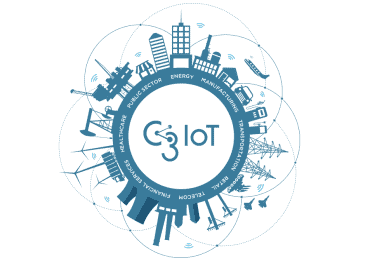
In this week’s real-time analytics news: SnapLogic launched the SnapLogic Accelerator for Amazon HealthLake, which helps establish a single platform for all healthcare data inputs.
Keeping pace with news and developments in the real-time analytics market can be a daunting task. Fortunately, we have you covered with a summary of the items our staff comes across each week. And if you prefer it in your inbox, sign up here!
SnapLogic launched the SnapLogic Accelerator for Amazon HealthLake, which enables healthcare and life sciences organizations to easily ingest a range of raw data into Amazon HealthLake, powered by Amazon Web Services (AWS), and transform it into healthcare-related insights and actions. The SnapLogic Accelerator for Amazon HealthLake establishes a single platform for all healthcare input requirements. It unlocks data from common on-premises legacy systems, including EPIC or Cerner, and expedites its movement into Amazon HealthLake, preparing it for immediate consumption by healthcare providers in their desired format.
Download Now: Building Real-time Location Applications on Massive DatasetsPozyx announced the launch of its new Pozyx software Platform, an asset tracking and identification solution based on the omlox hub and supporting multiple location technologies. The Pozyx Platform is designed for smart manufacturing providing supply chain solutions supporting Industry 4.0. It tracks and identifies any asset providing real-time data to relieve operational pain, improve operational efficiency, enhance productivity, and increase workflow performance. The use cases are defined to bring visibility and valuable insights on WIP, workforce efficiency, supply chain, and space utilization. It facilitates warehouse and inventory control, keeps track of returnable packaging and critical tools, and slashes lost asset costs.
Iterative launched Machine Learning Engineering Management (MLEM) – an open-source model deployment and registry tool that uses an organization’s existing Git infrastructure and workflows. The ability to build ML model registries using Git infrastructure and DevOps principles allows models to get into production faster. MLEM bridges the gap between ML engineers and DevOps teams. DevOps teams can easily understand the underlying frameworks and libraries a model uses and automate deployment into a one-step process for production services and apps.
Couchbase announced that Couchbase Capella now fully manages and hosts a backend for mobile and IoT applications called Capella App Services. The enhanced offering makes it easier for developers to design and deploy fast and resilient mobile applications that seamlessly sync data between the cloud and devices, enabling applications to work regardless of whether they are online or offline. Now as a fully managed service, development teams can save time, effort, and resources by streamlining setup configuration, synchronization, and ongoing backend services management.
Real-time analytics news in brief
InRule Technology announced the addition of AutoML within xAI Workbench, the company’s suite of machine learning modeling engines. Incorporating AutoML into xAI Workbench allows enterprises to scale the use of machine learning throughout the organization. By providing a guided, no-code model-building process, AutoML helps users solve machine learning challenges faster, using fewer resources while reducing the risk of human error and increasing the accuracy of predictions.
Schneider Electric and ETAP announced the integration of EcoStruxurePower Operation with ETAP Operator Training Simulator (eOTS) and ETAP Power System Monitoring & Simulation (PSMS), enabling model-driven power system training and predictive analysis for operators and engineers. This integration allows all EcoStruxure Power Operation systems to connect with ETAP Electrical Digital Twin on a continuous real-time basis. With this connection, operators can create and understand power system behavior during various real-world or plausible operating scenarios.
Stardog unveiled Stardog 8.0, which contains new features to streamline data exploration and discovery for all citizen data users. The new Advanced Query tool empowers citizen data users to ask complex business questions via the semantic layer more easily. By removing the need to learn a graph query language, users can self-serve from across their enterprise data landscape.
Incorta announced new capabilities and enhancements, including Delta Sharing compatibility and several new data apps. The newly released data apps offer prebuilt business schemas and dashboards for Oracle EBS, Oracle ERP and EPM Clouds, NetSuite, SAP, and others. The Delta Sharing upgrade is a native integration that enables Incorta customers to share operational data quickly and easily across a wide variety of data platforms and solutions.
Download Now: Building Real-time Location Applications on Massive DatasetsDDN announced the DDN AI Data Hub, which improves AI success through integration with companies such as Run:ai and published reference architectures with companies such as Graphcore and Habana, an Intel Company. With an integrated DDN A3I and Run:ai single pane of glass solution, users can optimize storage and data management. DDN A3I solutions combined with Graphcore’s Bow processors and Intel Habana Labs’ Gaudi AI processors accelerate corporations’ digital transformation with high-performance, enhanced IT productivity and flexibility at scale.
Cube Dev announced an updated API that makes its consistent data definitions accessible to users of every major business intelligence application. The PostgreSQL interface to the Cube platform makes it possible for BI tools such as Tableau, Superset, and Microsoft Power BI to query Cube as a data source. This means that these tools consume the same definitions and data as custom applications and embedded analytics features that use Cube’s GraphQL and REST interfaces.
Rockset announced a new integration with Oracle, enabling developers to run real-time, search, aggregations, and joins on data from Oracle databases. Specifically, this release enables developers using Oracle to run sub-second analytical queries, including JOINS with other databases, lakes, or event streams. And they can enable fast microservices using developer SDKs or deliver real-time reporting using one of Rockset’s integrations with visualization tools, including Tableau, Retool, Redash, and Superset.
Element announced the general availability of the integration of Element Unify with Azure Digital Twins. Element Unify for Microsoft Azure Digital Twins enables critical enterprise application and OT systems data to be integrated into Azure Digital Twins, reducing time to insights for industrial customers at scale. The Element Unify integration with Azure Digital Twins enables customers to model and publish digital twin templates and graphs, govern and maintain models, and ingest brownfield Azure Digital Twin Models.
BMC announced the BMC Innovation Labs Preferred Partner Program, a high-touch, collaborative co-innovation program built for and with BMC partners and customers. The BMC Innovation Labs Preferred Partner Program was created to provide dedicated spaces for partners to develop new ideas that go beyond traditional enterprise IT. It embraces fresh thinking and new perspectives and takes advantage of group ideation through a partner ecosystem to anticipate and addresses customers’ needs quickly and more effectively.
DryvIQ announced the availability of its latest migration and governance solutions that enable organizations to intelligently understand and protect enterprise content. Its Intelligent File Migration integrates with existing storage platforms and business applications and conducts continuous, cross-repository discovery scans to surface potentially risky data such as Personable Identifiable Information (PII), sensitive IT-related data, and more. Its Automate Governance and Rules-based Policy Enforcement allows organizations to maintain continual control and oversight of enterprise content with advanced AI-driven governance that is always on.
Micro Focus announced the release of Data Center Automation (DCA) for software-as-service (SaaS) delivery, offering vulnerability risk and IT compliance management. Micro Focus DCA identifies server vulnerabilities and automates remediation through a centralized approach – both on-prem and in the cloud. With DCA, users can see which servers are not compliant and remediate vulnerabilities with automated, agentless patching using SLO-based scheduling, bridging the gap between security and operations.
Partnerships, collaborations, and more
MariaDB Corporation and MindsDB announced a technology collaboration that makes machine learning predictions easy and accessible to cloud database users. By using MindsDB in SkySQL, MariaDB’s fully managed cloud database service, data science, and data engineering teams can increase their organization’s predictive capabilities to plan for and address real-world business issues.
Couchbase today announced that its Couchbase Capella Database-as-a-Service (DBaaS) offering is now available on Google Cloud. Customers now have more flexibility on where to deploy Capella, improving alignment with applications and supporting hybrid and multi-cloud strategies from a single platform.
Saturn Cloud and bodo.ai announced a partnership to bring extreme performance Python analytics to data scientists. Data scientists develop multiple workflows across teams and rely on Saturn Cloud to provide a collaborative environment and computing resources. With this partnership, those teams now have seamless access to the Bodo platform, allowing them to scale prototypes to petabyte-scale parallel-processing production without any tuning or re-coding.
Download Now: Building Real-time Location Applications on Massive DatasetsHeap announced the acquisition of Auryc to provide comprehensive quantitative and qualitative analytics in a single solution. The combined Heap plus Auryc solution will provide teams with a complete data set, natively integrated data science, and qualitative analytics for an understanding of their user’s digital behavior to quickly make decisions and improve digital experiences.
If your company has real-time analytics news, send your announcements to ssalamone@rtinsights.com.
In case you missed it, here are our most recent previous weekly real-time analytics news roundups:





























